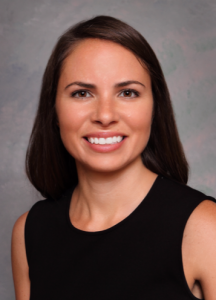
The Endocrine Society launched Special Interest Groups (SIGs) in 2019 to allow members with a similar interest to come together and collaborate both within and outside the SIG.
As transgender medicine is a rapidly evolving and growing field in endocrinology, our Transgender Research and Medicine SIG Steering Committee (co-chairs: Caroline Davidge-Pitts, MBBCH, and Sean Iwamoto, MD) has several important missions to accomplish in 2020-2021:
- Engage members in the online platform to create year-round networking and learning opportunities;
- Increase visibility and presence of transgender medicine and research topics at ENDO and in other Endocrine Society programming; and
- Build resources, discussions, and webinars that will assist members in navigating transgender research and medicine topics.
Being part of the SIG as a Steering Committee Member has introduced me to the online platform Community Connect. It is here that we can post, read, and discuss relevant articles and videos. I enjoy engaging with my colleagues on the community dashboard, including watching quarterly webinars on clinically interesting transgender topics. In a world overwhelmed by information overload, this community dashboard simplifies the search for important transgender medicine and research knowledge.
I am excited to continue identifying top issues in transgender medicine and creating resources to discuss what we know and don’t yet know about these issues.
Last April, our SIG launched three modules for Endocrine Society members: (1) Introduction to Transgender Health, (2) Non-Guideline Therapies for Gender-Incongruent Patients, and (3) Transgender Medicine: New Evidence Since Endocrine Society Guidelines.
For someone just venturing into this field, Iwamoto acknowledges in the introduction that only 19% of practicing endocrinologists had dedicated training in trans care. Therefore, he covers some important foundational terminology and statistics.
For those interested in more cutting-edge research, Siham Accacha, MD, discusses the use of bicalutamide, 5-alpha reductase inhibitors and progesterone in transgender women amongst other topics that need more research in module 2.
In module 3, Karyne Vinales, MD, presents recent studies including data suggesting that estrogen therapy may not need to be held in the perioperative period, a common request from surgeons, as it can cause our transgender women psychological distress. I invite readers to go to www.endocrine.org/transgender_module and watch these 30-minute modules.
Another triumph of our SIG is the update of the Transgender Health section on Hormone.org. It is here that we have information on feminizing and masculinizing hormone therapy along with gender affirming surgery and sexual health information. This is a great resource for clinicians to share with their patients!
It is a personal goal of mine to be an informed physician to provide high quality care to my patients and to improve care for all our transgender patients through clinical research studies.
Being part of the Transgender Research and Medicine SIG will instill more confidence and competence in my ability to be an endocrinologist with expertise in transgender care. It is a personal goal of mine to be an informed physician to provide high quality care to my patients and to improve care for all our transgender patients through clinical research studies. Our SIG allows for a way to build clinical consensus and research ideas. It also serves as a stage to present work to a group invested in the field. I am excited to continue identifying top issues in transgender medicine and creating resources to discuss what we know and don’t yet know about these issues.
For more information about the Transgender Research and Medicine SIG and other inaugural SIGs, please go to: https://www.endocrine.org/our-community/special-interest-groups

